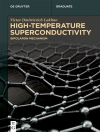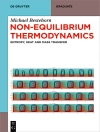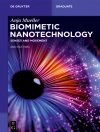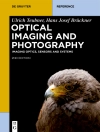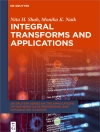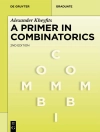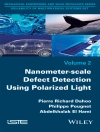A comprehensive coverage of the physical properties and real-world applications of magnetic nanostructures
This book discusses how the important properties of materials such as the cohesive energy, and the electronic and vibrational structures are affected when materials have at least one length in the nanometer range. The author uses relatively simple models of the solid state to explain why these changes in the size and dimension in the nanometer regime occur. The text also reviews the physics of magnetism and experimental methods of measuring magnetic properties necessary to understanding how nanosizing affects magnetism. Various kinds of magnetic structures are presented by the author in order to explain how nanosizing influences their magnetic properties. The book also presents potential and actual applications of nanomaterials in the fields of medicine and computer data storage.
Physics of Magnetic Nanostructures:
* Covers the magnetism in carbon and born nitride nanostructures, bulk nanostructured magnetic materials, nanostructured magnetic semiconductors, and the fabrication of magnetic nanostructures
* Discusses emerging applications of nanomaterials such as targeted delivery of drugs, enhancement of images in MRI, ferrofluids, and magnetic computer data storage
* Includes end-of-chapter exercises and five appendices
Physics of Magnetic Nanostructures is written for senior undergraduate and graduate students in physics and nanotechnology, material scientists, chemists, and physicists.
Tabella dei contenuti
Preface ix
Acknowledgment xi
1 Properties of Nanostructures 1
1.1 Cohesive Energy 1
1.2 Electronic Properties 7
1.3 Quantum Dots 10
1.4 Vibrational Properties 12
1.5 Summary 17
References 17
2 The Physics of Magnetism 19
2.1 Kinds of Magnetism 19
2.2 Paramagnetism 20
2.2.1 Theory of Paramagnetism 20
2.2.2 Methods of Measuring Susceptibility 22
2.3 Ferromagnetism 25
2.3.1 Theory of Ferromagnetism 25
2.3.2 Magnetic Resonance 29
2.4 Antiferromagnetism 32
References 34
3 Properties of Magnetic Nanoparticles 35
3.1 Superparamagnetism 35
3.2 Effect of Particle Size on Magnetization 35
3.3 Dynamical Behavior of Magnetic Nanoparticles 37
3.4 Magnetic Field?]Aligned Particles in Frozen Fluids 41
3.5 Magnetism Induced by Nanosizing 47
3.6 Antiferromagnetic Nanoparticles 48
3.7 Magnetoresistive Materials 50
References 53
4 Bulk Nanostructured Magnetic Materials 55
4.1 Ferromagnetic Solids With Nanosized Grains 55
4.2 Low?]Dimensional Magnetic Nanostructures 57
4.2.1 Magnetic Quantum Wells 57
4.2.2 Magnetic Quantum Wires 61
4.2.3 Building One?]Dimensional Magnetic Arrays One Atom at a Time 65
4.3 Magnetoresistance in Bulk Nanostructured Materials 67
References 74
5 Magnetism in Carbon and Boron Nitride Nanostructures 75
5.1 Carbon Nanostructures 75
5.1.1 Fullerene, C60 75
5.1.2 Carbon and Boron Nitride Nanotubes 78
5.1.3 Graphene 81
5.2 Experimental Observations of Magnetism in Carbon and Boron Nitride Nanostructures 81
5.2.1 Magnetism in C60 81
5.2.2 Ferromagnetism in Carbon and Boron Nitride Nanotubes 87
5.2.3 Magnetism in Graphene 88
References 93
6 Nanostructured Magnetic Semiconductors 95
6.1 Electron-Hole Junctions 95
6.2 MOSFET 98
6.3 N anosized MOSFETs 99
6.4 Dilute Magnetic Semiconductors 100
6.5 N anostructuring in Magnetic Semiconductors 103
6.6 Dms Quantum Wells 106
6.7 DMS Quantum Dots 106
6.8 Storage Devices Based on Magnetic Semiconductors 107
6.9 Theoretical Predictions of Nanostructured Magnetic Semiconductors 108
References 111
7 Applications of Magnetic Nanostructures 113
7.1 Ferrofluids 113
7.2 Magnetic Storage (Hard Drives) 118
7.3 Electric Field Control of Magnetism 121
7.4 Magnetic Photonic Crystals 123
7.5 Magnetic Nanoparticles as Catalysts 125
7.6 Magnetic Nanoparticle Labeling of Hazardous Materials 127
References 129
8 Medical Applications of Magnetic Nanostructures 131
8.1 Targeted Drug Delivery 131
8.2 Magnetic Hyperthermia 132
8.3 Magnetic Separation 134
8.4 Magnetic Nanoparticles For Enhanced Contrast in Magnetic Resonance Imaging 135
8.5 Detection of Bacteria 139
8.6 Analysis of Stored Blood 144
References 146
9 Fabrication of Magnetic Nanostructures 147
9.1 Magnetic Nanoparticles 147
9.2 Magnetic Quantum Wells 149
9.3 Magnetic Nanowires 152
9.4 Magnetic Quantum Dots 153
References 154
APPENDIX A A Table of Number of Atoms Versus Size in Face Centered Cubic Nanoparticles 155
APPENDIX B Definition of a Magnetic Field 157
APPENDIX C Density Functional Theory 159
APPENDIX D Tight Binding Model of Electronic Structure of Metals 163
APPENDIX E Periodic Boundary Conditions 165
Index 167
Circa l’autore
Frank J. Owens, Ph D., is a research professor in the Department of Physics at Hunter College and member of the graduate faculty at City University of New York. From 1990 until 2008, Dr. Owens was a senior research physicist for the US Army Armament Research Engineering and Development Center (ARDEC). Dr. Owens is the author of more than six books and more than 180 journal publications. He is a Fellow of the American Physical Society.


